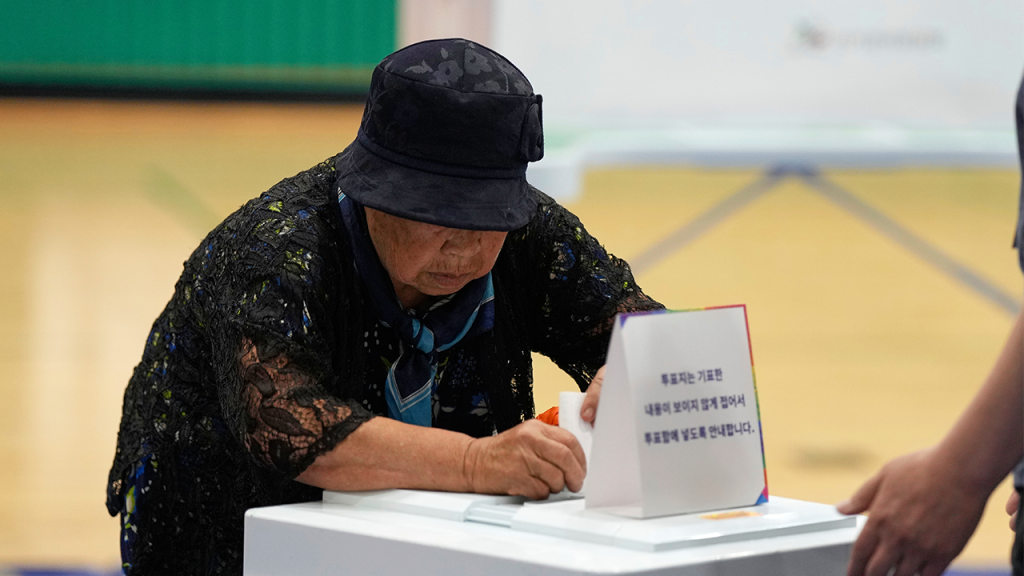On June 3, 2025, millions of South Korean voters participated in a pivotal presidential snap election triggered by the ousting of former President Yoon Suk Yeol. This election presents a significant political shift, as pre-election surveys indicate that Lee Jae-myung, representing the liberal Democratic Party, is likely to secure victory against his conservative rival, Kim Moon Soo. With issues like economic downturns and national security under scrutiny, the outcome will not only determine the future leadership but also impact broader geopolitical relationships.
| Article Subheadings |
|---|
| 1) Overview of the Election Dynamics |
| 2) The Rise of Lee Jae-myung |
| 3) The Conservative Candidate’s Challenges |
| 4) Voter Turnout and Sentiments |
| 5) Implications of the Election Results |
Overview of the Election Dynamics
The political landscape in South Korea has undergone a profound transformation following the removal of Yoon Suk Yeol, who faced rebellion charges tied to a controversial martial law declaration in December 2024. This unprecedented political crisis has led to a swift snap election, with voters heading to the polls amidst heightened tension. Early voter sentiment indicates a favorable outlook for Lee Jae-myung, as he represents a desire for change among the electorate weary of the conservative approach under Yoon’s administration.
This election is underscored by a growing divide in political ideologies, with conservatives aiming to maintain their hold amidst increasing public dissatisfaction. The influx of protests against Yoon’s actions has also galvanized the Democratic Party’s base, looking to exploit the opportunity to seize power.
The Rise of Lee Jae-myung
Lee Jae-myung, the presidential candidate from the Democratic Party, has emerged as a pivotal figure in this election. His campaign is characterized by a robust critique of the former administration, urging voters to affirmatively respond to the perceived failures of the conservatives. His rhetoric is tailored to resonate with voters tired of political turmoil and economic uncertainty.
At a rally on the eve of the election, Lee emphasized the importance of a democratic shift, urging his supporters to deliver a “stern and resolute judgment” against the conservatives. His key policy propositions include revitalizing the economy, addressing socio-economic inequalities, and fostering national unity, appealing directly to voters’ hopes for improved governance.
The Conservative Candidate’s Challenges
Kim Moon Soo, the main conservative contender from the People Power Party, faces significant hurdles in his campaign. Internal conflicts within the party regarding the past actions of Yoon Suk Yeol have detracted from a coherent strategy to attract moderate swing voters crucial for electoral success. Kim’s attempts to distance his campaign from Yoon’s controversial legacy are met with skepticism, as the public grapples with the fallout of the previous administration.
In his speeches, Kim has projected a narrative of maintaining order and safeguarding democracy, arguing that a win for Lee could lead to autocratic governance. This message, however, has not resonated strongly amid growing public frustration and an appetite for change, putting Kim’s campaign at risk of further losing public trust.
Voter Turnout and Sentiments
As the election unfolds, voter turnout is noteworthy. By 2 p.m. local time, more than 13 million South Koreans had already cast their ballots, reflecting an engagement rate of 65.5%. This significant turnout indicates not just apathy but a tangible desire for a voice in the shifting political climate. Pre-election early voting, which saw about 15 million participants, further emphasizes the urgency that voters feel regarding their electoral choices.
Lee’s campaign has effectively captured the mood of the electorate, while Kim’s efforts have struggled to demonstrate how his administration would differ from Yoon’s. Voter sentiment appears heavily influenced by recent social movements and protests, which have emphasized the need for renewal in governance. The conflicting narratives presented in this election highlight the division of the electorate as they navigate their hopes, fears, and expectations for the future of South Korea.
Implications of the Election Results
The implications of this election extend beyond the immediate leadership change. The new president will face the daunting task of addressing challenges like a slowing economy and threats from North Korea, alongside adapting to a world where U.S. foreign policy under President Donald Trump has brought tariffs that strain trade relations.
With the election’s outcome likely to have a cascading effect on U.S.-South Korean relations and regional stability, both candidates’ approaches to these issues will be scrutinized. Moreover, the election result will also reflect public sentiment towards the conservative ideals and may signal a long-standing shift in South Korea’s political alignment for the coming years.
| No. | Key Points |
|---|---|
| 1 | The South Korean presidential snap election is marked by the ousting of former President Yoon Suk Yeol. |
| 2 | Lee Jae-myung is the front-runner, leveraging public discontent with the conservatives. |
| 3 | Kim Moon Soo struggles to differentiate his campaign from Yoon’s controversial presidency. |
| 4 | Voter turnout is high, indicating a strong desire for change among the electorate. |
| 5 | The election results could have significant implications for South Korea’s economic and foreign policies. |
Summary
The South Korean snap election represents a critical juncture in the nation’s political history, embodied by the ongoing discontent with conservative leadership. With voter turnout reflecting a desire for significant change, the outcome will likely shape future governance and public policy. Both candidates present contrasting visions, making this election decisive for the future trajectory of South Korea.
Frequently Asked Questions
Question: Why was a snap election called in South Korea?
A snap election was called following the ousting of former President Yoon Suk Yeol due to charges related to his declaration of martial law.
Question: Who are the main candidates in this election?
The main candidates are Lee Jae-myung from the Democratic Party and Kim Moon Soo from the People Power Party.
Question: What are the major issues impacting the election?
Key issues include economic challenges, national security concerns from North Korea, and public discontent with the previous conservative administration.
